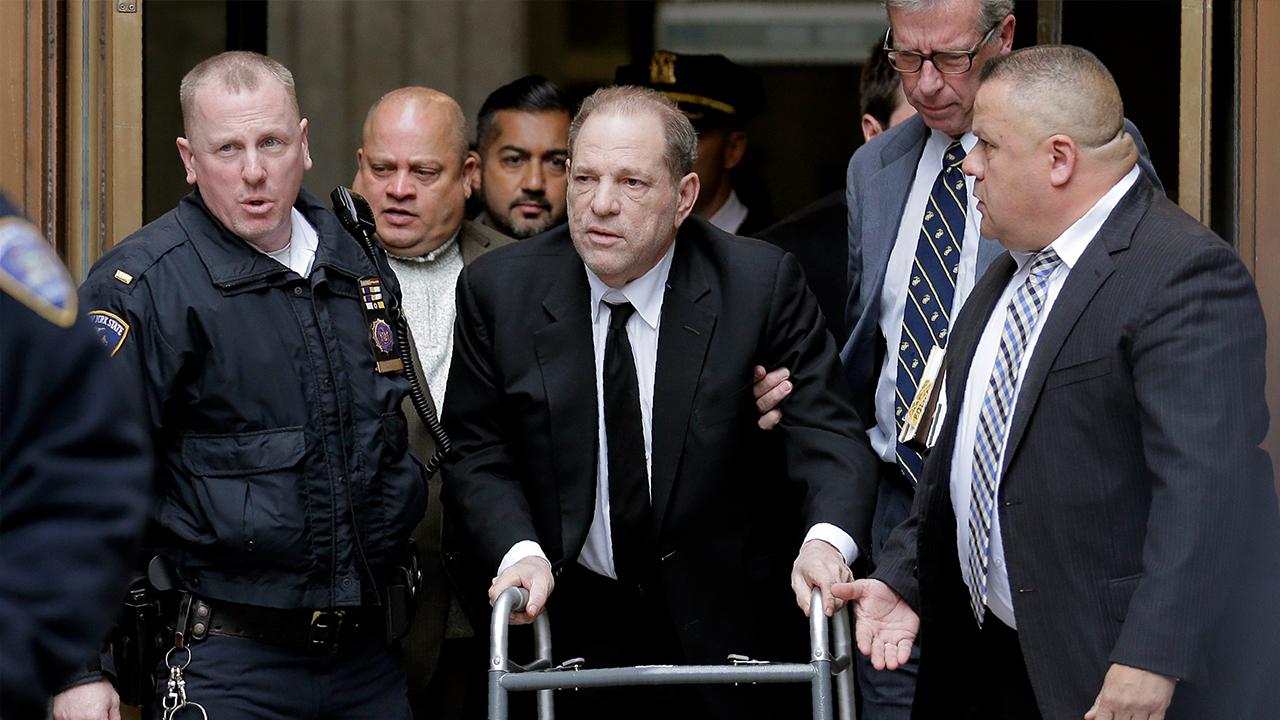Fox News Flash top headlines for Jan. 12
Fox News Flash top headlines for Jan. 12 are here. Check out what's clicking on Foxnews.com
A literary, legal and cultural storm in France is possibly becoming a watershed moment in the broader #MeToo movement.
Vanessa Springora, 47, has written an explosive tell-all book that alleged, in cutting detail, an underage and destructive sexual relationship with French writer Gabriel Matzneff, now in his eighties.
“This is a very important book. It’s France’s #MeToo moment,” said Homayra Sellier, an advocate for child victims of sexual violence with the group Innocence in Danger.
“It was very hard to watch him being praised to the skies by everyone,” said Sellier, who wrote to then-President Francois Hollande in protest after Matzneff won the prestigious Renaudot literary prize, in its essay category, with few complaints in 2013. “It was shocking. It is shocking. Everyone looked the other way for 30-40 years.”
In Springora’s book, “Consent,” which was published this month and quickly became a commercial success, she wrote that she was a fragile 14-year-old, too young to foresee the damage done to her life by what she called his predatory grip on her body and mind.

Vanessa Springora alleged an underage and destructive sexual relationship with French writer Gabriel Matzneff, now in his eighties. (Getty, File)
Matzneff recently became the target of a new rape probe by Paris prosecutors. Yet, for years, Matzneff was a frequent guest on French TV and radio. He had been awarded prestigious literary prizes and honored by the French government with medals and an annual allowance.
Springora said that when she was a teenager and he was 50, she was bowled over by the writer who seemed to have eyes only for her. She alleged that he then set about grooming her until he was waiting habitually at her school gates so he could take her away for sex in his apartment or a hotel.
Matzneff has defended himself in an essay, which the L’Express magazine published in full. He wrote that he will not read Springora’s book, describing it as “a dagger to the heart” that is “intended to harm me, to destroy me” and which “tries to make me out as a pervert, a manipulator, a predator, a bastard.” He described his relationship with Springora when she was “my young lover” as one of the “passionate loves” of his life.
IDRIS ELBA SAYS #METOO MOVEMENT IS 'ONLY DIFFICULT IF YOU'RE A MAN WITH SOMETHING TO HIDE'
“His books were populated by other 15-year-old Lolitas,” Springora wrote, recalling how the blinders fell from her eyes. “This man was no good. He was, in fact, what we are taught to fear from childhood: an ogre.”
Jacques Toubon told the Quotidien talk show that he regretted his decision as culture minister in 1995 to decorate the writer with France’s Arts and Letters medal. The current culture minister, Franck Riester, said Matzneff should no longer receive the annual state allowance for which he has been eligible, calling him “the eulogist of pedo-criminality.”
While Springora’s book has been flying off the shelves, already in its seventh printing after a week on sale, publishers who for years backed Matzneff have been running in the other direction, withdrawing his writings, including “The under 16s,” a shock essay first published in 1974.
That essay came in the wake of France’s intellectual ferment and social upheaval unleashed by May 1968 riots and strikes, when protesters sought to break free of the country’s old political and social order and build anew, behind the slogan, “it is forbidden to forbid.”
CLICK HERE TO GET THE FOX NEWS APP
For Springora, the book has been her way of turning the tables and having the final word.
“What has changed today,” she wrote, “...is that after the liberation of moral standards, the words of victims are also liberating themselves.”
The Associated Press contributed to this report.









































